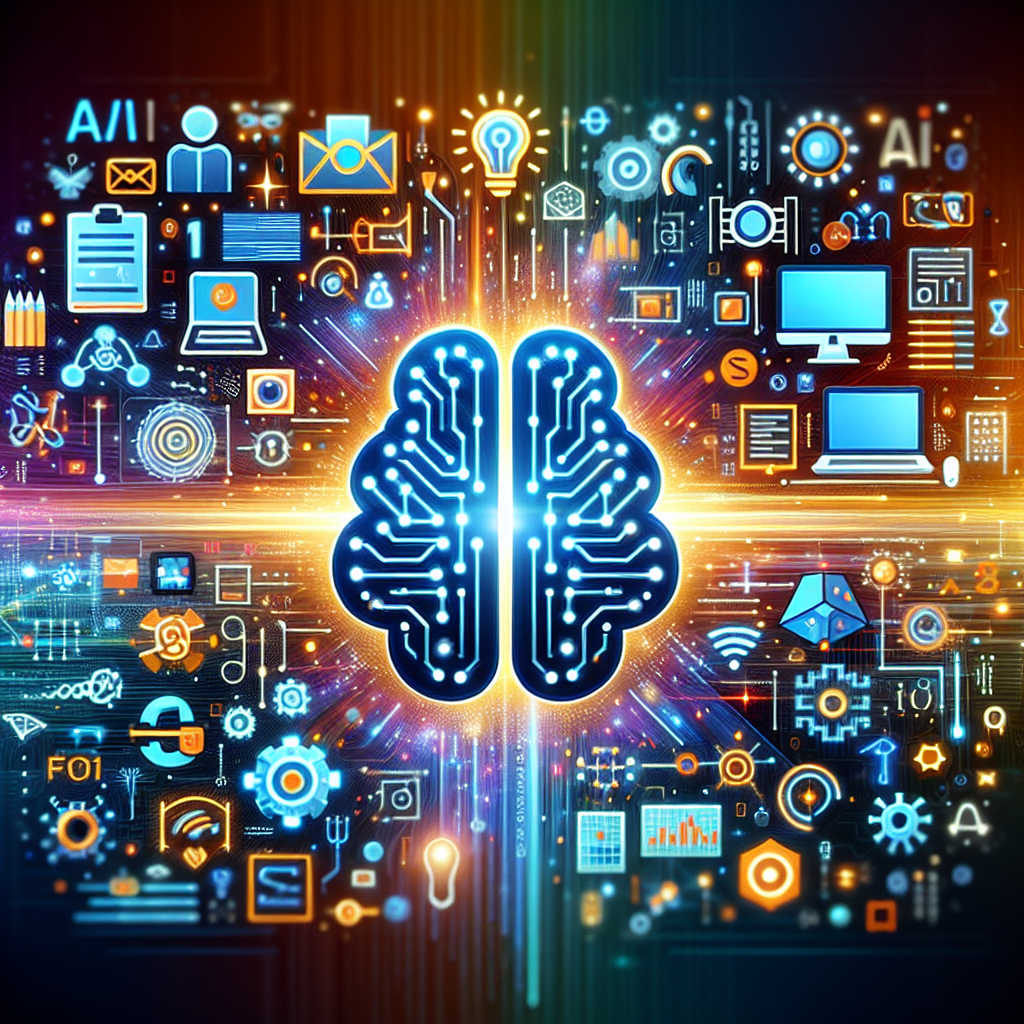Artificial General Intelligence (AGI) has been a topic of fascination and concern for many in the tech industry and beyond. AGI refers to a form of artificial intelligence that possesses the ability to understand and learn any intellectual task that a human being can. While current AI systems are designed for specific tasks and lack the general intelligence of humans, the development of AGI has the potential to revolutionize industries and the way we work.
The potential impact of AGI on the future of work is immense. With the ability to perform a wide range of tasks at a human level or beyond, AGI has the potential to automate a significant portion of work currently done by humans. This could lead to increased efficiency, productivity, and innovation in many industries. However, it also raises concerns about job displacement, inequality, and the ethical implications of AI-driven decision-making.
In this article, we will explore the potential impact of AGI on the future of work, how it could transform industries, and address common questions and concerns about the development of AGI.
AGI and the Future of Work
The development of AGI has the potential to revolutionize the way we work in many industries. AGI systems have the ability to learn and adapt to new tasks, making them versatile and capable of performing a wide range of functions. This could lead to increased efficiency and productivity in many industries, as AGI systems can perform tasks more quickly and accurately than humans.
One of the key ways AGI could transform industries is through automation. AGI systems have the potential to automate a wide range of tasks currently performed by humans, from routine administrative tasks to complex decision-making processes. This could lead to significant cost savings for businesses, as well as increased efficiency and accuracy in many processes.
In industries such as manufacturing, logistics, and customer service, AGI could automate repetitive and time-consuming tasks, allowing humans to focus on more strategic and creative work. This could lead to increased innovation and productivity in these industries, as well as the development of new products and services that were previously not possible.
AGI could also have a significant impact on the healthcare industry. With the ability to analyze large amounts of data and make complex decisions, AGI systems could assist healthcare professionals in diagnosing and treating patients more effectively. This could lead to improved patient outcomes and reduced healthcare costs, as well as the development of new treatments and therapies.
Overall, the potential impact of AGI on the future of work is vast. While it has the potential to revolutionize industries and increase efficiency and productivity, it also raises concerns about job displacement, inequality, and the ethical implications of AI-driven decision-making. It is important for businesses, policymakers, and society as a whole to consider these implications and work towards mitigating any negative effects of AGI on the workforce.
FAQs
Q: What is the difference between AGI and current AI systems?
A: Current AI systems, also known as narrow AI, are designed for specific tasks and lack the general intelligence of humans. AGI, on the other hand, has the ability to understand and learn any intellectual task that a human can. AGI systems are versatile and capable of performing a wide range of tasks, making them potentially more powerful and transformative than current AI systems.
Q: How will AGI impact the job market?
A: The impact of AGI on the job market is still uncertain. While AGI has the potential to automate a significant portion of work currently done by humans, it could also lead to the creation of new jobs and industries. It is important for businesses, policymakers, and society as a whole to consider these implications and work towards mitigating any negative effects of AGI on the workforce.
Q: What are some ethical concerns surrounding the development of AGI?
A: There are many ethical concerns surrounding the development of AGI, such as job displacement, inequality, and the potential for AI-driven decision-making to be biased or discriminatory. It is important for businesses and policymakers to consider these concerns and work towards ensuring that AGI is developed and deployed in a responsible and ethical manner.
In conclusion, the development of AGI has the potential to revolutionize industries and the way we work. While it raises concerns about job displacement, inequality, and ethical implications, it also offers the potential for increased efficiency, productivity, and innovation. It is important for businesses, policymakers, and society as a whole to consider these implications and work towards ensuring that AGI is developed and deployed in a responsible and ethical manner.

